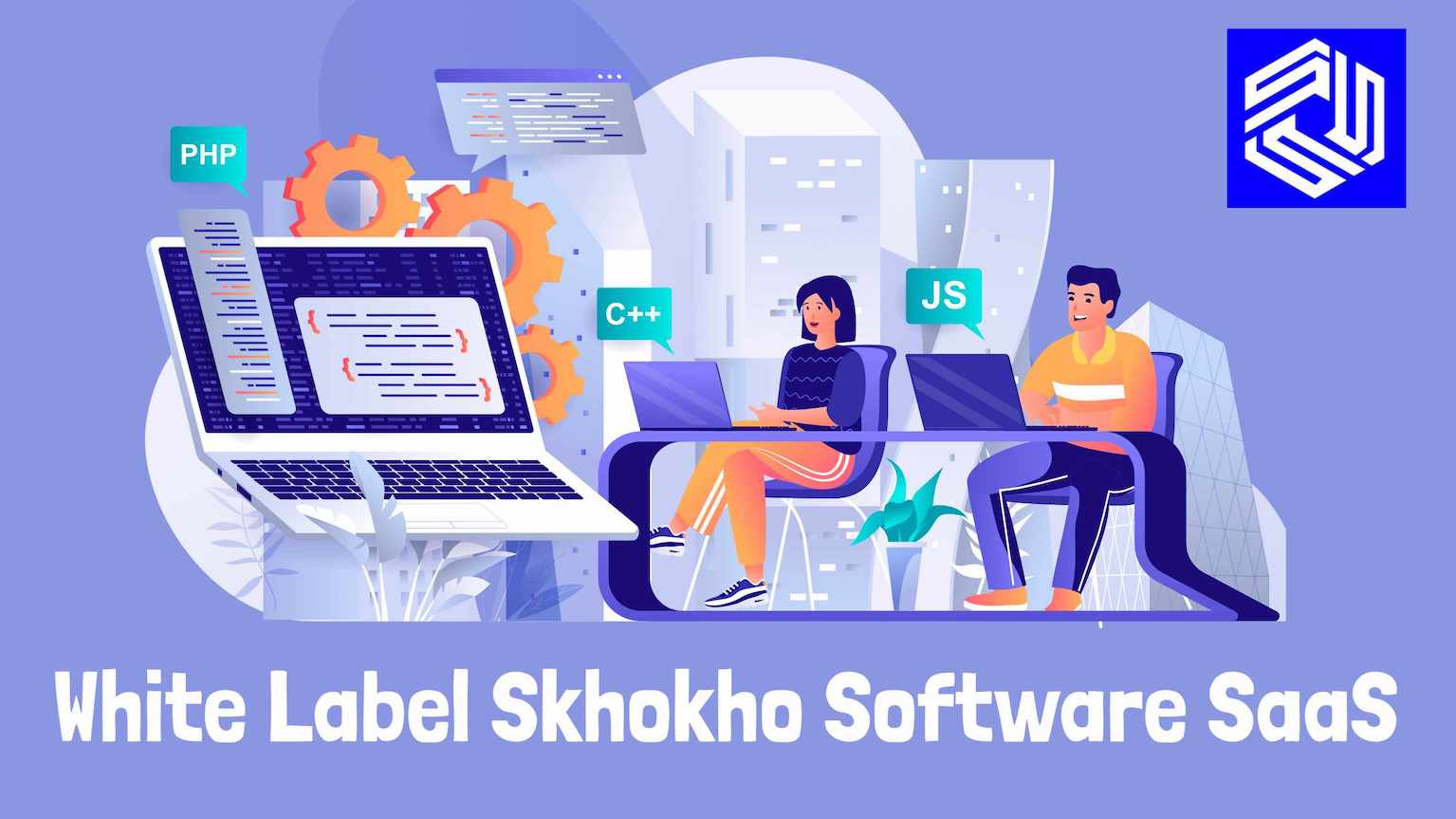The Advantages of White Labeling for Startups and Small Businesses
White-labeling approach is a business strategy in which one company produces a product or service that is then rebranded and sold by another business. It is relevant for start ups and small companies because it allows them to quickly enter the market with a product or service that is already developed and proven to be successful. White-labelling can also help these companies save on costs and time, as they do not need to invest in research and development or production. Additionally, white-labelling can help in establishing a strong brand and increase visibility in the market, as well as ensure that their products or services meet industry standards and regulations.

This article will focus on the following topics:
- The main benefits of white label
- Why Brands Need White Labelling
- How Businesses Can Benefit From Using White Label Solutions
- White Label Software
The Main Benefits of White Label
White-labeling offers many benefits for startups and small companies. The main advantage is that it allows them to quickly enter the market with a product or service that is already developed and proven to be successful, without the need for extensive research and development or production. It also helps them to save on costs and time by outsourcing certain services and buying bulk products.
Additionally, white-labelling can help startups and small businesses establish a strong brand and increase visibility in the market, as well as ensure that their products or services meet industry standards and regulations. It also can help them to expand their product lines and offer more variety to their customers.
Why Brands Need White Labeling
- Flexibility: It Offers a wider range of products and services to their customers and target markets, without having to invest in research and development or production.
- Proven track record: Allows startups to use products or services that have already been proven to be successful in the market, which increases their chances of success.
- Reduced risk: Enables companies to test the market without investing a significant amount of money in research and development or production.
- Time to market: White-labelling enables startups and small businesses to launch products or services quickly and without having to wait for a long time to develop them from scratch.

How Businesses Can Benefit From Using White Label Solutions
Some benefits of a white label solution include:
I. Cost savings
White-labeling can help startups and small businesses save on production and development costs by buying bulk products or outsourcing certain services.
How does white-label can help startups and small businesses save
White-labelling can help startups and small businesses save on production and development costs in a number of ways. One of the main advantages is that they can white label products or white label services at a lower cost than if they were to develop them from scratch. For example, a startup company can white-label a product that is already manufactured and tested, rather than investing in the production process themselves. This can save them significant amounts of money on production costs such as resources, labor, and equipment. Additionally, white-labelling can also help startups and small businesses save on development costs by using pre-existing templates, platforms, and designs, rather than creating them from scratch. This can save them significant amounts of money on design costs such as research, prototyping, and testing.
Three Examples:
A startup company wants to launch a new software for project management for small teams, but building it from scratch would be too expensive and time-consuming. Instead, the company decides to white-label an existing project management software that has already been developed and tested. By white-labelling, the company can purchase the software at a lower cost than if they had developed it themselves, saving them significant amounts of money on development costs such as research, prototyping, and testing. Additionally, the company can also rebrand the software to match their own brand identity and make it unique to their customers. This will enable the company to launch their product faster, as they don't need to wait for the software to be developed, and also they can use the time to focus on other aspects of the business such as marketing, sales and customer service.
Outsourcing customer service: A startup company that sells electronic devices can white-label customer service by outsourcing it to a third-party provider. This can save them a significant amount of money on hiring and training employees and also ensure that customers get the best support.
II. Time saving
White-labelling can help startups and small businesses save time by avoiding the need to develop products or services from scratch, and speed up the product development process by using pre-existing templates or platforms.
How white-labelling can help startups and small businesses save time
White-labelling can help startups and small businesses save time by avoiding the need to develop products or services from scratch. By using existing products or services, startups and small businesses can eliminate the time and effort that goes into researching, developing, and testing new products or services. For example, a startup company can white-label an existing project management software that has already been developed and tested, rather than developing it themselves.

Examples:
One example is using existing templates or platforms. For example, a small business wants to launch an e-commerce website, but building it from scratch would be too time-consuming and expensive. Instead, the company decides to white-label an existing e-commerce platform that has already been developed and tested. By white-labelling, the company can use the pre-existing templates and platforms, rather than creating them from scratch. This can save them significant amounts of time on development costs such as research, prototyping, and testing.
Another example is a small business wants to launch a new mobile application, but the development process is too complex. The business can white-label an existing mobile application that has already been developed and tested. By using the pre-existing application, the company can save time on development costs such as research, prototyping, and testing. Furthermore, the company can also rebrand the application to match their own brand identity and make it unique to their customers. This will enable the company to launch their product faster, as they don't need to wait for the application to be developed.
III. Branding and marketing
White label branding can help startups and small businesses establish a strong brand and increase visibility in the market by creating a consistent brand image, such as using a standard packaging design or logo.
How white-labelling can help startups and small businesses establish a strong brand and increase visibility in the market
White-labelling can help startups and small businesses establish a strong brand and increase visibility in the market in a number of ways. One of the main advantages is that they can use existing products that have already been established and have a proven track record of success. This can help them to establish credibility in the market and make it easier for them to attract new customers.
Furthermore, white-labelling allows small businesses to offer a variety of products or services to their customers which can help them to differentiate themselves from the competition and attract more customers. By providing a wider range of products or services to their customers, small businesses can establish themselves as a one-stop-shop for all their customers' needs, which can help them to increase visibility in the market and build a strong brand.
Another advantage of white-labelling is that it allows small businesses to leverage the marketing efforts of the original manufacturers. This can help small businesses to increase visibility in the market as the original manufacturers may have a wider reach and a bigger marketing budget than small businesses. This can help small businesses to increase visibility in the market and build a strong brand without having to invest a lot of time and money in marketing and advertising.
Examples:
White-labelling can be used to create a consistent brand image in a number of ways. One example is using a standard packaging design. A small business wants to launch a new line of beauty products, but creating new packaging would be too time-consuming and expensive. Instead, the company decides to white-label an existing line of beauty products and use the pre-existing packaging design. By white-labelling, the small business can use the standard packaging design that has already been established and has a proven track record of success. This can help the small business to create a consistent brand image and make their products stand out on the shelves.
Another example is using a standard logo. A startup wants to launch a new line of clothing, but creating a new logo would be too time-consuming and expensive. Instead, the company decides to white-label an existing line of clothing and use the pre-existing logo. By white-labeling, the startup can use the standard logo that has already been established and has a proven track record of success. This can help the startup to create a consistent brand image and make their products stand out in the market.

IV. Quality control and compliance
White-labelling can help startups and small businesses ensure that their products or services meet industry standards and regulations by using pre-approved suppliers or using pre-existing certifications.
How white-labelling can help startups and small businesses ensure that their products or services meet industry standards and regulations
White-labelling can help startups and small businesses ensure that their products or services meet industry standards and regulations by using pre-existing products or services that have already been established and have a proven track record of compliance. This can help the startup to ensure that their products are safe and meet industry standards for quality and safety. Additionally, by white-labelling, the startup can also leverage the existing supplier's certifications, quality control systems and procedures, which have already been established and have a proven track record of compliance.
Examples of how white-labelling can be used
An example: a small business wants to launch a new line of electronic products, but creating a new product would be too time-consuming and expensive. The business can white-label an existing line of electronic products that have already been developed, tested and proven to comply with electronic industry standards and regulations. This can help the small business to ensure that their products are safe to use and meet industry standards for quality and safety. Additionally, by white-labelling, the small business can also leverage the existing supplier's certifications, quality control systems and procedures, which have already been established and have a proven track record of compliance.
White Label Software: Skhokho Business Management Software
A white labelled version of Skhokho Business Management Software is available for purchase. Start your own business or extend your business by offering a fully integrated Business Management Software - SaaS services to your clients. Skhokho manages the software, servers, technology, security, scalability - so you can focus on your clients and business. Skhokho also allows white label partners to do their own branding or fine tune the system to make it feel and look the way they want.

For more information on what Skhokho offers, visit their website here. You can create an account and use the 14 day free trial to test out the entire software before you make any commitments. For a guide on how to use Skhokho, click here.
Conclusion
In conclusion, white-labelling is a powerful tool for start ups looking to save on production and development costs, speed up the product development process, establish a strong brand and increase visibility in the market, and ensure that their products/services meet industry standards and regulations.
If you're interested in learning more about how white-labelling can benefit your business, don't waste time, conduct your own research and speak with white-labelling experts to determine if it's the right fit for your business. With the right approach and the right supplier, white-labelling can be a game-changer for your business and help you achieve your goals in a cost-effective and efficient manner.









